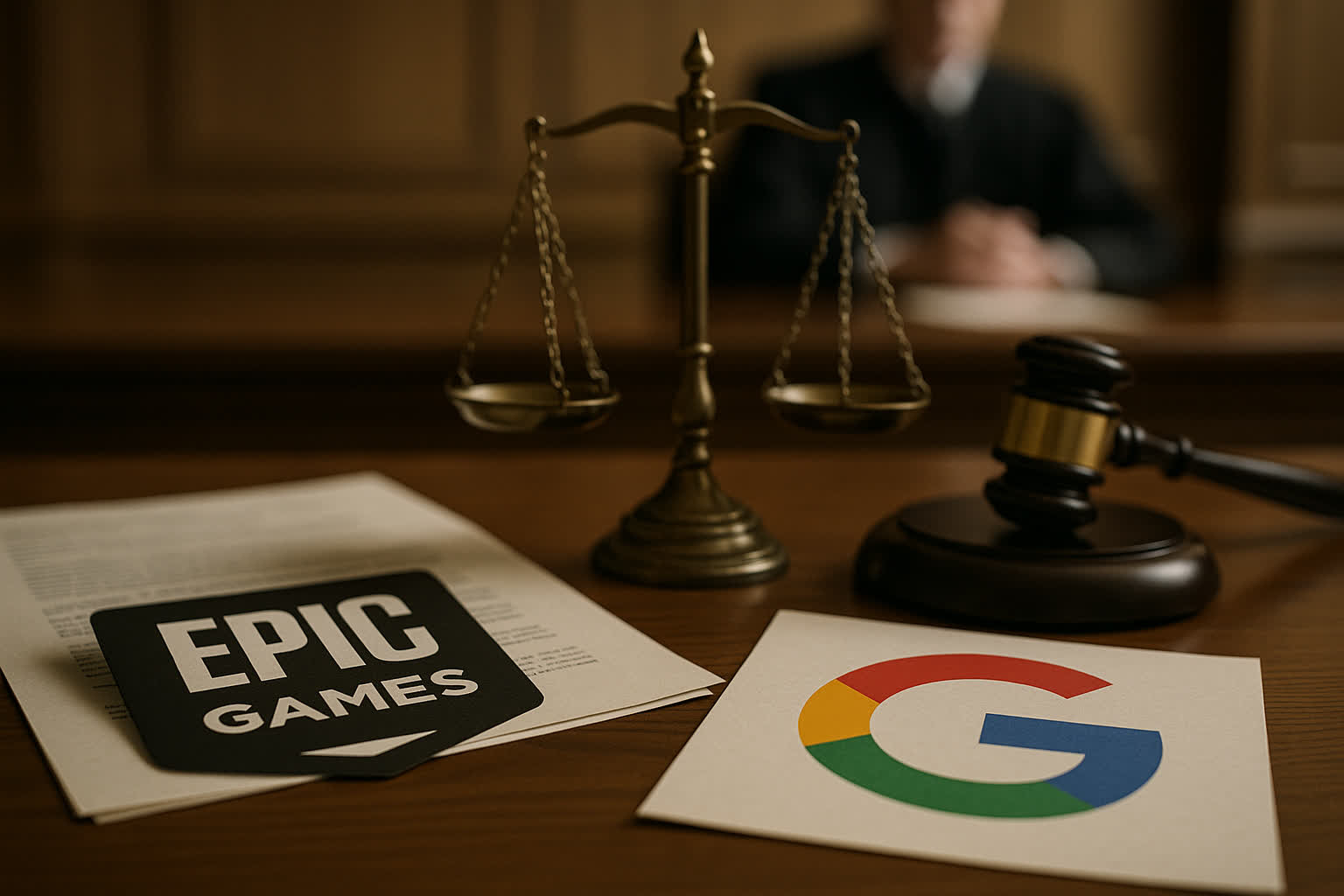What just happened? A pivotal chapter in the ongoing battle over the mobile app marketplace closed this week as the Ninth Circuit Court of Appeals upheld a jury's finding that Google's Play Store for Android apps functions as an illegal monopoly. The ruling affirmed that Google employed unlawful practices to maintain its dominance, rejecting the company's attempts to reverse an earlier decision in favor of Epic Games.
The original dispute traces back to the rapid rise of mobile gaming and, specifically, the popularity of Epic's Fortnite. Developers long faced steep commissions – typically between 15 percent and 30 percent – on in-app purchases processed through Apple's App Store and Google's Play Store.
In 2020, Epic took steps to skirt these fees by introducing its own payment system within Fortnite. Both Apple and Google swiftly responded by removing the game from their respective stores, igniting a pair of lawsuits with major implications for the app store business model.
Big Tech argues these cases are too "complex" for juries. But a jury decided this case, and today, the Ninth Circuit backed them up.
– Hetal Doshi (@hetaljdoshi) July 31, 2025
Turns out Americans are more than up to the task of deciding when monopolists break the law. If the public bears the harm, we deserve the right to… https://t.co/rx2F0nL43V
While Epic ultimately lost its case against Apple, which operates with more restrictive rules, a jury in December 2023 concluded that Google's handling of third-party app distribution and payment systems on Android was designed to suppress competition. Despite Android's reputation as an open-source platform that technically permits sideloading of apps, the court found that Google's deals with device manufacturers and its control over essential app market access cemented its status as the de facto gatekeeper for Android software.
In its appeal, Google challenged several aspects of the trial, asserting that the Play Store's competition with Apple's App Store was wrongly excluded from jury consideration, and arguing that a judge – not a jury – should have weighed Epic's claims.
Google's legal team further insisted that the remedies ordered by US District Judge James Donato, which required sweeping changes to the Play Store, would force the company to develop costly new systems and potentially undermine its business model.
Yet, in a detailed opinion, Judge Margaret McKeown wrote that evidence of Google's anticompetitive conduct was "replete," emphasizing that the Play Store's dominant position was reinforced by network effects and the terms imposed on developers and device makers. The court's remedies, McKeown wrote, were justified given both the seriousness of Google's actions and the broader impact on the digital marketplace.
With this ruling, Google faces a profound transformation of its app ecosystem. The company must allow distribution of third-party app stores within the Google Play Store and make its full catalog of apps available to rival marketplaces, unless developers opt out. Developers will no longer be forced to use Google's billing system, freeing them to direct users to alternative payment methods that could increase their earnings. For at least three years, Google has also been barred from providing incentives to developers for exclusive launches on its platform.
The case may not be over: Google has indicated it could seek review by the US Supreme Court. Absent further delays, however, the Play Store and the broader Android ecosystem appear set for a new era, in which rival app stores and payment systems will, for the first time, compete on a more level playing field.
